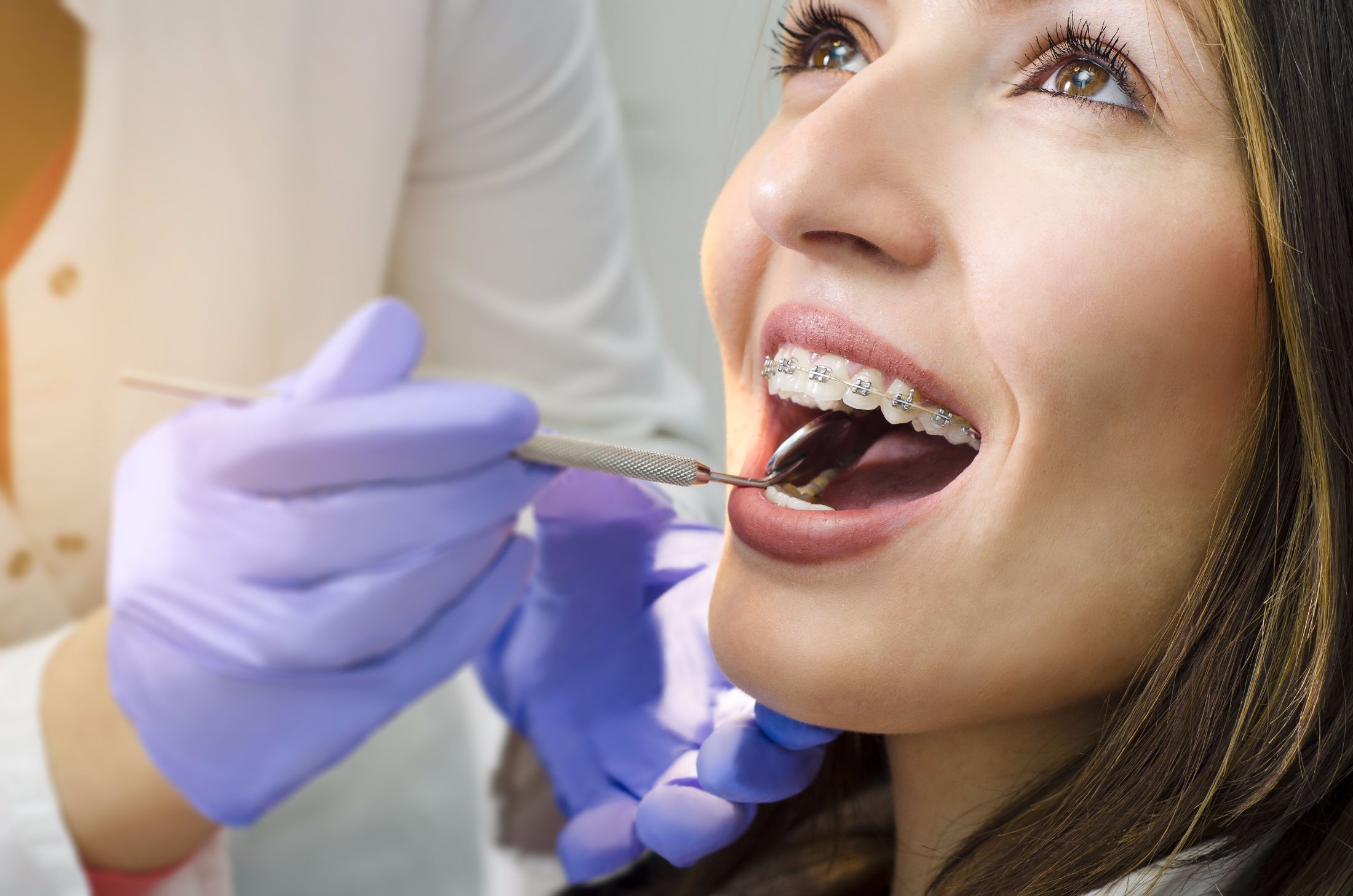Here at Szymanowski Orthodontics, we hear plenty of concerns from our patients in braces. It’s not uncommon to hear things like “How long do I have to wear them?” “Will they hurt?” “Will my wisdom teeth affect anything?”
Wait, wisdom teeth?
That’s right! Wisdom teeth might not be on your radar, but a lot of our patients are very concerned about how their wisdom teeth can affect their orthodontic treatment.
A lot of patients start to worry when they see their wisdom teeth beginning to emerge, thinking that they will mess up all of the treatment they just went under or are still finishing up.
Are these worries justifiable? Can teeth exert enough pressure to move the teeth that are around them?
We understand the worry behind these questions, but Szymanowski Orthodontics has got you covered. Let’s take a look at how wisdom teeth can affect orthodontic treatment!
So what are wisdom teeth?
Wisdom teeth are the third set of adult molars that make an appearance between the ages of 17-21. Some have theirs come in completely, while others’ only comes in partially. There are even a few people whose wisdom teeth don’t come in at all!
Are wisdom teeth going to affect your smile?
Around the time that wisdom teeth start to come in, many patients will notice a “relapse” in their teeth positions. Are wisdom teeth really the reason for this shift?
You might find this surprising, but studies show that wisdom teeth are not the culprit! Most people assume that because wisdom teeth grow in sideways that they must exert quite a bit of pressure on the teeth next to them and cause teeth to shift. However, research done at the University of Iowa has shown that wisdom teeth do not exert the amount of pressure needed to move the teeth in front of them to cause them to shift. Researchers placed sensors between patients’ teeth and observed the pressure on them, both with and without wisdom teeth present. There was no noticeable difference.
So if wisdom teeth don’t cause our teeth to shift in our late teens and early twenties, then what does?
 The answer is actually very simple: we get older.
The answer is actually very simple: we get older.
It’s perfectly normal for our teeth to start to change as we get older. They might begin to overlap as part of a natural drifting that occurs, moving teeth forward slightly. As they begin to overlap, the upper teeth will sometimes press the lower teeth inward toward the tongue. Also, around this time of life, the jaw does undergo a growth spurt which can also move teeth into some less than desirable positions.
So if you’ve ever wondered why your orthodontist encourages you to wear your retainer so much, this is why! Wearing your retainer is your best defense to help your teeth stay as straight as they were when you finished your orthodontic treatment!
Some wisdom about wisdom teeth
Even though wisdom teeth might not affect your newly straightened smile, there are a few oral health concerns you might want to keep in mind if yours are growing in. These concerns can cause some oral health issues:
-If wisdom teeth only emerge partially, a flap of skin can potentially form that partially covers the tooth and has a bad habit of trapping food. This can cause gum infection and tooth decay if it is not taken care of.
-Some people don’t have enough room in their mouth for their wisdom teeth to fully emerge. When this happens, they often end up impacted. This means that they can’t break through the surface and get stuck in your jaws and gums, which can cause some discomfort.
-If the teeth do become impacted, painful cysts can sometimes form on the gums. These cysts can sometimes cause infections and decay to the tooth roots surrounding them.
-Wisdom teeth often emerge sideways or at an awkward angle. If this happens, they can rub against the inside of the cheeks and cause discomfort.
One of the biggest concerns we see with wisdom teeth is that many patients don’t have enough room for them to come in comfortably. Even if there is enough room for their wisdom teeth, the back of the mouth is usually so crowded that brushing and flossing them proves to be very difficult. This is actually one of the leading causes of tooth decay and gum infection in the back of the mouth.
Don’t skip the retainer!
If you have already had orthodontic treatment, the best thing that you can do to keep your teeth from shifting is wearing your retainer consistently. If you notice your wisdom starting to emerge, give us a call to avoid any of the potential problems that come with impacted or partially emerged wisdom teeth. You should also continue to schedule regular appointments with us or your dentist even after your orthodontic treatment is finished.
 To wrap it all up…
To wrap it all up…
Thankfully, problems with overcrowding can be diagnosed a while before wisdom teeth ever make their appearance. Once they get close enough to the surface, they can be easily extracted to prevent further complications.
If you’re worried about your wisdom teeth coming in during the course of your orthodontic treatment, don’t be! Wisdom teeth can easily be removed while also having braces, so you don’t have to worry about how they will affect your treatment. You’ll be able to continue your treatment uninterrupted!
Not every person has to have their wisdom teeth removed. If you are not experiencing problems with yours, then there is no need to have them extracted.
Once again, we cannot emphasize enough how important it is to continuously wear your retainer after finishing up your orthodontic treatment. It’s the only sure-fire way to keep your teeth looking as straight as they did when you finished your treatment. If you start to notice that yours is feeling tighter than normal, or that there’s a bit of pressure in the back of your mouth, schedule a visit with us so that we can determine whether or not it is your wisdom teeth coming in.
How Szymanowski Orthodontics can help
If you are in the Sacramento area and are in need of a new retainer, get in touch with us here at Szymanowski Orthodontics and let us help you maintain your smile. Our friendly staff is here to help you with all of your questions about wisdom teeth and how they can impact your overall oral health. Get in touch to schedule your first visit or give us a call at 916.993.4171!


 Dr. Szymanowski
Dr. Szymanowski